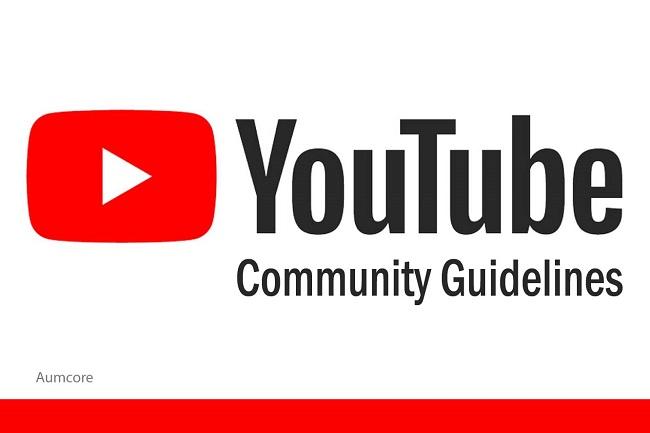
In the ever-evolving landscape of digital marketing,YouTube influencers have emerged as powerful players,wielding the ability to shape opinions adn drive consumer behavior with a mere click of a “subscribe” button. As brands increasingly turn to thes social media mavens to amplify their reach, the intersection of creativity and legality becomes a critical focal point. “Decoding the Law: Navigating YouTube Influencer Marketing” delves into the intricate web of regulations and guidelines that govern this dynamic arena. From understanding disclosure requirements to exploring the nuances of intellectual property rights, this article aims to equip brands and influencers alike with the knowledge they need to thrive in a space where innovation meets obligation. Join us as we unravel the complexities of influencer marketing, ensuring that creativity flourishes within the framework of the law.
Understanding the Legal Framework of Influencer Marketing on YouTube
As the influencer marketing landscape on YouTube continues to evolve, understanding the legal framework that governs these engagements is paramount for both creators and brands. The core of this framework is grounded in transparency and honesty, requiring influencers to disclose their sponsored content to maintain trust with their audience. This is primarily enforced by the Federal Trade Commission (FTC) in the United states,which emphasizes that any material connection between the influencer and the brand must be clearly communicated. Key elements to remember include:
- Always disclose paid partnerships or sponsorships in a clear manner.
- Using hashtags like #ad or #sponsored in the video description is encouraged.
- Influencers must avoid misleading claims or representations about products.
Additionally, influencers are subject to numerous regulations beyond just disclosure. Copyright laws, privacy concerns, and intellectual property rights must also be navigated carefully to avoid potential pitfalls. It’s essential for content creators to understand the implications of using copyrighted materials without permission, as unauthorized use can lead to serious legal setbacks. Below is a simple overview of crucial legal aspects to consider:
| Legal Aspect | Description |
|---|---|
| FTC Guidelines | Ensure transparency in sponsored content through disclosure. |
| Copyright | Avoid using copyrighted content without proper licenses. |
| Privacy Laws | Respect the privacy of individuals in video content. |

Identifying Key Regulations and Guidelines for YouTube Creators
Understanding the intricate web of regulations and guidelines is essential for any YouTube creator looking to monetize their content legally and effectively. The Federal Trade Commission (FTC) mandates transparency in advertising, requiring creators to disclose paid partnerships or sponsored content clearly. A few basic rules include:
- Transparency: Always disclose when content is sponsored, either in the video itself or via captions.
- Honesty: Avoid misleading claims about products or services offered in your videos.
- Compliance: Familiarize yourself with local laws regarding advertising and endorsements.
Moreover,YouTube has established its own set of community guidelines and monetization policies that creators must adhere to in order to avoid penalties or channel suspension. Crucial aspects to consider include:
| Guideline | Description |
|---|---|
| Copyright Policies | ensure you have permission to use music, video clips, and images in your content. |
| Hate Speech | Avoid content that promotes violence or hatred against individuals or groups. |
| Child Safety | Follow strict rules when creating content intended for children to protect their well-being. |

Crafting Compliant Brand Collaborations: Best Practices for Influencers
In the dynamic realm of YouTube influencer marketing, crafting compliant collaborations is essential for both influencers and brands. To maintain transparency and build trust with audiences, it’s crucial to adhere to guidelines set forth by regulatory bodies, such as the Federal Trade commission (FTC). Influencers shoudl consider the following practices to ensure their partnerships remain above board:
- Clear Disclosure: Always disclose any material relationship with brands upfront, using clear and conspicuous language.
- Consistent Messaging: Ensure that the promotional content aligns with your usual style and messaging to maintain authenticity.
- Quantifiable Impact: Keep track of the engagement and interaction driven by these collaborations to assess their effectiveness.
Additionally, it’s beneficial for both influencers and brands to establish a collaboration agreement that outlines the terms of the partnership. This agreement may include:
| Agreement Aspect | Details |
|---|---|
| Compensation | Details on payment or commission structure. |
| Content Ownership | Clarity on who retains rights to the created content. |
| Duration | Timeframe for the collaboration and publication timelines. |
By adopting these best practices,influencers can navigate the complexities of brand collaborations while maintaining compliance and fostering authentic connections with their audience.

Navigating Disclosure Requirements to Build Trust and Transparency
In the rapidly evolving landscape of YouTube influencer marketing, adhering to disclosure requirements is essential for fostering an environment of trust between creators, brands, and audiences. Transparency is not just a legal obligation; it’s a cornerstone of ethical marketing practices. By clearly identifying paid partnerships or sponsored content, influencers can ensure their followers are informed, thus enhancing credibility. Key elements to include in your disclosures:
- Clear Language: Use straightforward terms like “ad” or “sponsored” rather than vague phrases.
- Visibility: Ensure the disclosure is easily readable and positioned prominently within the content.
- Consistency: Regularly remind viewers of partnerships to strengthen understanding.
Brands partnering with influencers must also recognize the importance of supporting their collaborators in following these regulations. Providing clear guidelines and helping to craft appropriate disclosures can lead to more effective campaigns. Additionally, keeping track of compliance through organized documentation is essential. Consider using a tracking system that includes:
| influencer | Date of Campaign | Type of Disclosure | Status |
|---|---|---|---|
| Influencer A | 2023-01-15 | Ad | Confirmed |
| Influencer B | 2023-02-20 | Sponsored | Pending |
| Influencer C | 2023-03-10 | Partnership | Confirmed |
Wrapping Up
As we conclude our exploration of “Decoding the Law: Navigating YouTube Influencer Marketing,” it becomes clear that the digital landscape, while promising and dynamic, is also fraught with legal intricacies that require careful navigation. Influencers and brands alike must arm themselves with knowledge to ensure compliance while leveraging the vast potential of their audiences. The importance of transparency,clear communication,and adherence to best practices will not only protect creators and companies but also enhance trust with consumers.
In this ever-evolving space, staying informed is key. As regulations shift and audience expectations grow, a proactive approach will be essential for success. By embracing these legal guidelines, influencers can elevate their marketing strategies, fostering genuine connections with their followers and ethical partnerships with brands.
So whether you’re an aspiring influencer, a seasoned marketer, or simply curious about the legalities behind the content you consume, remember that education is your most potent ally. As we ride the wave of digital innovation together,let’s advocate for an industry that prioritizes integrity and creativity—because in this arena,everyone has a role to play. Continue to engage, learn, and innovate, and you just might find that the law is not just a set of rules, but a framework that can empower your success in the vibrant world of YouTube marketing.